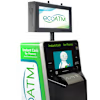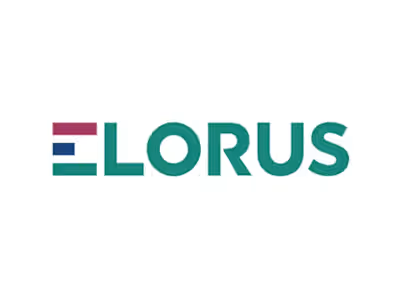Save Money and Energy with Smart Devices This Year
Setting up a smart home has never been easier than it is right now, as there are hundreds of thousands of smart devices available and several popular choices to set them up and control them.
Many of the most trusted and popular tech brands on the market today — including Apple, Google, Amazon, Samsung, GE, TP-Link, Philips, Yamaha, and more — now offer devices that help you set up your smart home. In this article, we'll walk you through many of the best smart home devices on the market and the ecosystems you can use to guide them.
Whether you prefer using Alexa, Google Home, Apple's HomeKit, or Samsung SmartThings, you can find a compatible smart speaker, lock, plug, lighting system, and more. Not only do the best smart home devices help you save money and energy, but they also make your life easier by automating several key processes within your home.
Plus, Gazelle has amazing deals on certified refurbished devices like iPhones, iPads, and Samsung Galaxy phones to help you set up and operate your smart home. With our great low prices, you don't need to let the potentially high cost of a new device stop you from optimizing your home's efficiency.
From the front door to the living room and all points between, these are the best smart home devices and ecosystems available today.
The Best Ecosystems for Smart Home Devices
When setting up your smart home devices, you need to choose a system to control them. Our three favorite options come from three of the biggest brands in tech today: Google, Apple, and Amazon.
All of these companies have excellent home automation systems. While they each have their pros and cons, generally speaking, you can't go wrong with any of them.
So, if you have existing brand loyalty — for instance, if you own an iPhone and/or iPad — you can simply choose the one you already use. That's because Google, Apple, and Amazon were three of the co-founders of Matter, a smart home connectivity standard that promotes compatibility between smart home gadgets made by different manufacturers.
What is the Matter home connectivity standard?
In the early days of smart home devices, consumers would need to buy gadgets from the same company if they wanted to ensure compatibility. In other words, Google Assistant wasn't always adept at communicating with devices manufactured by other companies.
Ever since these three tech giants co-created the open-source Matter connectivity standard in late 2019, users have always had the option to choose local control for their smart home devices. In addition, the Matter standard improved interoperability between devices, regardless of which company created them.
Since its creation, several other major smart home companies have joined the Matter standard, including IKEA, Huawei, and the French digital automation company Schneider Electric. Over the years, Matter has expanded its reach to include a vast array of device types, including lighting products, smart locks, HVAC systems, motion sensors, TVs, streaming video devices, kitchen appliances, laundry machines, robot vacuums, fire alarms, air purifiers, and more.
Let's take a look at what Amazon, Google, and Apple have to offer when it comes to smart home automation control. Is Alexa, Google Assistant, or Siri the best option for you? Or, is there another option that might suit your needs better?
Amazon Alexa Smart Home
The Amazon Echo is the most popular smart speaker in the world, and roughly half of all Americans who use smart speakers use the Amazon Echo. Therefore, it should come as no surprise that Amazon's Alexa is an extremely common choice for smart home automation.
Alexa is compatible with many more devices than any other smart home ecosystem, as it's currently integrated with nearly 150,000 devices — Google Assistant supports roughly 1/3 as many devices, and Apple HomeKit supports less than that. However, it's worth noting that if you like using your phone as a smart home controller, you'll need to open the Alexa app whenever you want to interact with your devices. Amazon hasn't manufactured a smartphone since the failure of the Fire Phone back in 2015, so its integrations with phones lag behind those of Google or Apple.
That said, you still have a ton of options regarding Alexa smart home hubs. Interestingly, Amazon just debuted its Echo Hub device in September 2023, the first time it has ever produced a device for specific use as a smart home controller hub.
The Amazon Echo Hub's infrared motion sensor powers up the device whenever you walk by, making it a truly hands-free device. Amazon also offers several decorative frames for the Echo Hub, so it blends in seamlessly with the interior design of your home.
You can use the Amazon Echo Hub's built-in microphone and speakers to support voice calls, interact with your video doorbell, or watch videos on the device's eight-inch screen. That said, the Amazon Echo Hub's speakers can leave something to be desired. There's no rear subwoofer like you'll find on the comparable Google Nest Hub Max (more on this in a moment), although this also means that the Echo Hub has a thinner profile.
In addition to the Echo Hub, you can use Amazon products like the Echo Studio smart speaker or Echo Show smart display to control your smart home devices.
As a smart home controller, Alexa has a feature called Hunches that can come in handy for forgetful homeowners. As an example, if you leave a door unlocked, Alexa can bring it to your attention and ask if you'd like the door locked. You can even take it a step further and allow Alexa to act independently on these Hunches, giving it the ability to turn lights on and off, change the temperature of your thermostat, close your garage door, and more without your input.
Google Home
Everyone knows the name "Google," as it's one of the most widely recognized and trusted tech brands in the world. Google Assistant is the controlling force behind the Google Home platform, an ecosystem that supports more than 50,000 different devices from thousands of different manufacturers.
Google provides a wide variety of options for smart home control hubs. For starters, every Android phone includes Google Assistant, so if you're an Android smartphone user, you already have a Google Home controller in the palm of your hand.
However, Android phones are just the tip of the iceberg. Other options for Google Home controllers include the Google Nest Hub devices, which are specifically made to use as hubs.
For instance, the Nest Hub Max has a 10-inch HD screen, two stereo speakers, and even a three-inch subwoofer, allowing you to control your smart home devices with ease while also watching TV and videos, listening to music, making voice and video phone calls, and more. You can even use the Nest Hub Max's onboard camera to keep an eye on your home while you're away.
The Nest Hub Max provides users with two excellent choices for screensavers. You can create a "Live Album" in your Google Photos account that displays your favorite pictures on a rotating basis, or you can select the "Ambient EQ" feature, which automatically detects light and color combinations in the room and displays images that sync with your decor and style.
You can also use the Nest Wi-Fi Pro — Google's proprietary wireless router — as your smart home hub, or choose from one of Google's smart speakers, like the Nest Audio or Nest Mini. Or, if you'd rather use a third-party device as your hub, you can choose from a variety of Matter-compatible products like the Aqara Smart Hub M2, which Google actually features on its own website as a recommended hub option.
How does Google Home compare to other options? Overall, the voice control features of Google Assistant have somewhat broader capabilities than those of Apple's Siri or Amazon's Alexa. Google Assistant can understand complicated commands better than most competitors, and it can also answer questions with greater accuracy than Siri or Alexa.
Apple HomeKit
Apple dominates the United States smartphone market, with a whopping 61% market share in the U.S. compared to less than 25% market share worldwide. As you may expect, the Apple HomeKit smart home controlling ecosystem is also more popular in the U.S. than it is in most other countries.
While HomeKit supports fewer devices than its counterparts from Amazon and Google, it does have some advantages of its own, especially in regard to security. Apple exerts strong control over its ecosystem, which makes it less susceptible to hackers than Google or Amazon. (Another factor is Apple's local data storage options, which are more secure than using strictly cloud-based ecosystems.)
While you can control HomeKit using your iPhone or iPad, using a dedicated hub can unlock more features than you can access with a phone or tablet. For example, using an Apple TV as a smart home hub provides more options for automating your devices, and it also gives you improved access to your connected smart home devices when you're away from home.
Other than the Apple TV, Apple offers two external smart home hub choices for HomeKit, the 2nd-gen Apple HomePod and the HomePod Mini. Both devices are primarily smart speakers, lacking the tablet-style display screens of the Amazon Echo Hub or Google Nest Hub Max.
The original Apple HomePod was available from 2018 until it was discontinued in 2021, while the 2nd-gen HomePod debuted in 2023. Interestingly, the current generation of HomePod has inferior speakers, microphones, and Wi-Fi than the original version, although it has a lower price point ($299 as opposed to $349) and now offers ultra-wideband (UWB) support.
Meanwhile, the HomePod Mini (which hit the market in 2020) has a list price of just $99 and a much smaller physical footprint than the full-size Apple HomePod. It runs on the Apple S5 chip rather than the more powerful S7 chip used in the 2nd-gen HomePod, and it only has half as many speakers as its full-sized counterpart, but otherwise stands on roughly equal footing when it comes to features and performance.
Samsung SmartThings
Samsung is another worldwide tech giant, and it has its own home automation platform called SmartThings. While SmartThings has plenty of inviting features of its own, it also has one major drawback compared to the options we've already discussed.
Namely, Samsung does not participate in the Matter smart home connectivity standard like Amazon, Apple, and Google. As a result, SmartThings has more compatibility issues than any of those aforementioned options, and it's not compatible with HomeKit at all.
In addition, Samsung recently discontinued its proprietary SmartThings Hub. It now outsources hub manufacturing to the small Germany-based electronics company Aeotec. While Aeotec has a solid reputation of its own, it has just a few hundred employees worldwide and lacks the brand power of Samsung.
That said, if you're an existing Samsung customer, SmartThings could be appealing. SmartThings is closely compatible with devices like Samsung's Galaxy smartphones and tablets, and you can also pair it with Google Assistant so you can use voice commands.
SmartThings also offers more local control than Google Home and Amazon Alexa Smart Home, as long as you set up the Aeotec Smart Home Hub or one of Samsung's discontinued proprietary hubs. If you have one of these hubs, SmartThings maintains local control over your devices and isn't entirely reliant on a Wi-Fi connection.
The Best Smart Devices for Home Automation
Once you choose your smart home ecosystem, it's time to decide which devices you want to connect. These days, there are more options for smart home devices than ever before, to the point where it can become overwhelming. We'll run down our top picks in several popular product categories to help you narrow down your choices.
Smart Lock
Carrying around a set of keys can be a thing of the past, thanks to the rise of smart lock technology. These smart devices allow you to lock and unlock your door remotely, provide easy and secure entry for workers and guests, and more. In our research, three smart lock products stood out above the pack.
August Wi-Fi Smart Lock
Homeowners love the August Wi-Fi Smart Lock, as it offers built-in Wi-Fi, it can be easily integrated with your current lock mechanisms, and it's fully compatible with Google, Amazon, and Apple ecosystems. It comes with auto-locking features and sensors to let you know if your door is locked, plus it's simple to install.
The only real drawbacks are the price tag — it costs $249, plus $60 for the optional keypad accessory — and the somewhat short battery life.
Ultraloq U-Bolt Pro with Wi-Fi
As its name implies, the Ultraloq U-Bolt Pro with Wi-Fi is another Wi-Fi-enabled device, right out of the box. We love how it includes a coded entry system, and it even has a fingerprint sensor and hidden keyhole mechanism.
Like the August Wi-Fi Smart Lock, Ultraloq's top-shelf locking device is somewhat expensive ($280), although you can get a cheaper model without a lock sensor or Wi-Fi ($179), or one that does away with those features and the fingerprint sensor ($149). Unfortunately, Ultraloq's products are not compatible with Apple HomeKit at this time.
Yale Assure Lock 2 with Wi-Fi
Yale has several smart locks, but our favorite is the Assure Lock 2 with Wi-Fi, as it supports Amazon Alexa, Google Assistant, and Apple HomeKit. The base version costs $233 and includes a keypad, while the version with a touchscreen costs roughly $20 more. Other than its mediocre battery life and the fact that it can be a bit tougher to install than the previous two options we've discussed, there aren't many disadvantages to the Yale Assure Lock 2 with Wi-Fi.
Smart Plug
With the introduction of smart plug technology to your home, you'll never have to worry about turning off your curling iron ever again. There are many affordable and high-quality smart plug devices on the market today, and we think any of the following options would be a great addition to your smart home.
TP-Link Kasa Smart Wi-Fi Plug Mini
While TP-Link's smart plug isn't compatible with Apple HomeKit (and, to be fair, many smart plugs aren't), it's an outstanding option for homes using Google Assistant or Amazon Alexa. It has built-in Wi-Fi, and its app allows you to set custom schedules and tinker with your timers with ease. With a price point of around $20, it's a great bargain.
GE Cync Smart Plug
This smart plug from General Electric is incredibly easy to set up. It allows you to set scheduled routines, bundle several devices together for coordinated controls, and create different modes based on your daily activities. Like the TP-Link smart plug we discussed above, the GE Cync Smart Plug costs just $20, but it also doesn't work with HomeKit.
Leviton Decora Smart Mini Plug-In Dimmer
Leviton makes several great smart plugs (we also love the Leviton D215P-2RW for $27), and they're all compatible with Amazon Alexa, Google Assistant, Apple HomeKit, and even Samsung SmartThings. The Decora Smart Mini Plug-In Dimmer costs roughly $40, so it's a bit on the expensive side, but we love its ability to control dimmers for your lights, even the ones that don't operate with smart bulbs.
Video Doorbell
Video doorbells offer a simple and affordable solution for anyone looking to beef up their home security. The video doorbell has been on the market for a while now, so they're a bit easier to review than some other smart home devices. We found many strong candidates for the best video doorbell, but we think these two are the cream of the crop.
Ring Video Doorbell Pro 2
The Ring Video Doorbell Pro 2 certainly isn't the cheapest device on the market, as it costs $250. However, you'd be hard-pressed to find a better combination of features and reliability. The Pro 2 has a wide view, high resolution, night vision, and an impressive motion detector.
Ring has had some bad press, as it has a history of handing over video footage to the police without a warrant. While we would understand if this turned off any potential buyers, we will note that Ring now has convenient encryption settings that prevent third parties (including Ring itself) from seeing your doorbell's footage.
Arlo Video Doorbell
If you want to get a reliable, high-quality option that doesn't break the bank, look no further than the Arlo Video Doorbell. The original version is often available for around $50-60, and the 2nd-gen Arlo Video Doorbell costs $89.99.
Arlo includes some impressive features, offering a simple and intuitive installation process, a wide-angle view, a low-light night mode, 2K video, phone notifications, and an alert siren. That said, there are a couple of shortcomings at this price point, as the device itself is a bit bulky and you'll need to pay for a (relatively inexpensive) cloud storage subscription.
Smart Lighting
Smart lighting is one of the simplest and most user-friendly smart home devices, as most products in this category offer easy setup and effortless operation. Smart lights are also typically quite affordable, as you can find some great options for around $25 or even less. Check out a few of the best smart home devices for lighting.
Philips Hue Light and Color Ambiance
If you're just getting started with smart lighting, it doesn't get much easier than using the Philips Hue Light and Color Ambiance starter kit. For around $190, you get four "white and color" lightbulbs and a hub to control them. Or, you can choose four color lightbulbs and a hub for roughly $170. If you just want plain white bulbs with a hub, the price point drops into the $120 range.
These bulbs have tons of integration options, making it easy to incorporate them into any smart home setup. In addition, we appreciate the Hue Sync app, which can create a wide variety of light sync options and color effects. Overall, the Philips Hue Light and Color Ambiance package isn't the cheapest starter kit out there, but it's hard to question its quality.
Wyze Bulb
If all you need is a white smart bulb, the Wyze Bulb is an outstanding choice. It's highly affordable, as you can currently order a two-pack directly from Wyze for $16.99. These bulbs allow you to easily adjust the color temperature and brightness, and there's even a "Sun Match" option to sync the bulb's output with the natural light levels in the room.
Philips Hue White Floodlight LED
Looking for an outdoor smart floodlight? This is another product subcategory with an impressive offering from Philips Hue. You can purchase one white bulb directly from Philips for $22, and there are color options available as well. In addition to affordability, the Philips Hue White Floodlight LED is highly efficient and offers easy setup and operation.
Smart Speakers
All of the smart hub options we discussed above in the "Best Ecosystems for Smart Home Devices" category have built-in speakers, and most of them offer pretty good audio as well. That said, let's look beyond first-party proprietary devices from Amazon, Apple, and Google and discuss a couple of the best speakers available regardless of your chosen ecosystem, offering improved sound and compatibility with a broad selection of smart devices.
Sonos Era 100
Do you want the best-sounding compact smart speaker, now with a new generation that adds tweeters and a 25% larger subwoofer for improved sound on both the high and low end? The Sonos Era 100 might be a bit pricey at $249 but it's truly unmatched for sound quality and comes with some great features.
One of our favorite features of the Sonos Era 100 is its room-tuning equalizer that automatically optimizes sound based on the characteristics of the room it's in. We also appreciate its multi-room feature that makes it simple to fill your home with consistent, top-quality sound. You can even use two Sonos Era 100s as stereo speakers for a home entertainment system.
That said, the Sonos Era 100 does have a rather significant negative for Google Assistant users, as the current generation doesn't include direct support for the Google ecosystem. On the other hand, you could connect a Nest Mini to the Sonos Era 100 as a means of connecting it to a Google smart home. It also now offers Bluetooth support, so even if you do use Google Assistant and don't want to connect additional devices, you still have an alternate means of controlling it.
Yamaha ATS-2090
Looking for a smart sound bar to connect to your TV? The Yamaha ATS-2090 is a terrific option. It costs less than $200 (at the time of this writing, Amazon had it available for $159.99) and offers impressive full-room DTS virtual surround sound capabilities.
The ATS-2090 has built-in support for Alexa, and it even offers some limited Alexa hub options, like setting timers, controlling thermostats, and turning lights on and off. Furthermore, all you need to run it on HomeKit or Google Assistant is the "Sound Bar Controller" app from the Apple App Store or Google Play. It offers Spotify compatibility right out of the box and provides Bluetooth and Wi-Fi connection options.
Control the best smart home devices with a smartphone or tablet from Gazelle.
When you set up the best smart home devices, you need top-notch devices to control them. Here at Gazelle, we offer certified refurbished smart devices like smartphones and tablets to keep control of your smart home at your fingertips.
Why spend retail price on brand-new smart devices when you can save hundreds by buying lightly used phones and tablets? Reach out to Gazelle today to learn more about our rigorous 30-point inspection process and check out our inventory to find your next smartphone or tablet!
Apple iPhone 14 and 15
We have a broad selection of iPhone models to help you control your smart home devices. You can choose from all the latest models, including the iPhone 14, 14 Plus, 14 Pro, and 14 Pro Max, along with the iPhone 15 and 15 Pro. We also offer unlocked iPhones that work with any carrier, as well as devices for specific carriers (AT&T, T-Mobile, and Verizon).
Samsung Galaxy S23
Find your next Samsung Galaxy smartphone with Gazelle! We carry lightly used Galaxy S23, S23+, and S23 Ultra models — at the time of this writing, we have S23 smartphones available for as little as $374.99. Whether you're using Samsung's proprietary SmartThings system to control the best smart home devices or you choose another ecosystem, the Galaxy S23 series is an excellent choice.
Apple iPad
If you prefer to control your smart devices with a tablet, we have several different iPad models available. From the iPad Mini 6 to the iPad Pro 12.9" 6th-gen tablet, we have a certified refurbished iPad for every budget. See how easy it is to control HomeKit with an iPad from Gazelle today!
Like this project
Posted Feb 7, 2024
An overview of the best smart devices and the home automation systems that control them.






